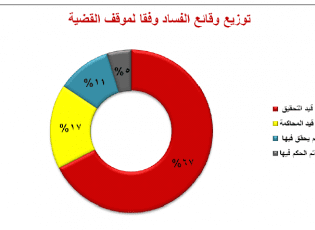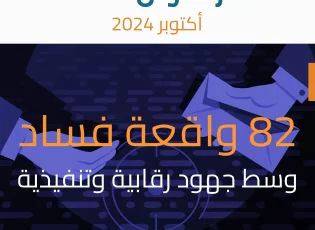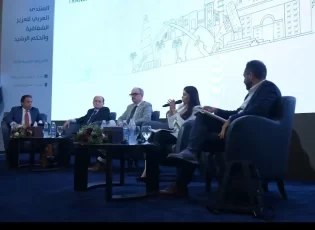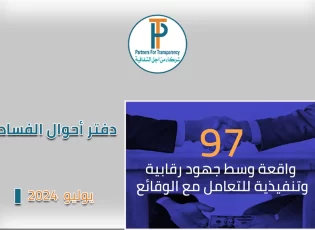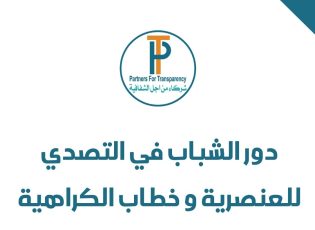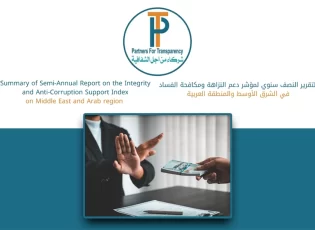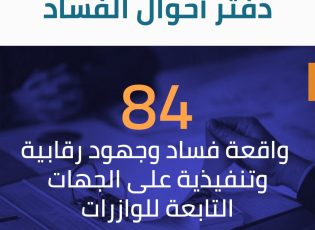In conjunction with the International Anti-Corruption Day
Partners for Transparency issues the 17th report in Corruption Log Book Series.
72 corruption incident in November and a parliamentary division on founding a national anti-corruption body.
Gad Elkareem: The legislative and procedural environment in Egypt is still far from anti-corruption requirements.
In conjunction with the International Anti-Corruption day which falls on 9th December every year, Partners for Transparency Foundation has issued its 17th report in Corruption Log Book Series through which legislations and procedural developments and statements related to anti-corruption are being observed and analyzed along with observing and analyzing corruption incidents which were revealed or published through various media, as the report covers November 2016.
Dr. Walaa Gad Elkareem, the general director at Partners for Transparency Foundation, says that this year, the International Anti-Corruption day comes after nearly a year since the Egyptian parliamentary elections and after two months since its second convening period took place, however, anti- corruption law initiatives are still absent, pointing out that November 2016 has witnessed a division among parliament members on the need for founding an independent anti-corruption body, a proposal that was submitted by the MP Dr. Anisa Hassouna and faced objections from some members of the parliament, which is considered a lack of fulfillment of Egypt's commitment according to the United Nation Convention against Corruption.
In terms of incidents of corruption, Partners for Transparency report has revealed that November 2016 has witnessed 72 corruption incidents, more than its quarter lies in the Ministry of Supply (20 incidents), after it comes the Ministry of Health with 7 corruption incidents, followed by the local councils section and the Ministry of Agriculture with 5 incidents for each, and then Information Technology and Communications sector and Ministry of Interior with corruption 4 incidents for each.
Regarding the judicial stance, the incidents under investigation took the lead among incidents of corruption in November 2016 with a majority of 82%, followed by incidents on trial with 8%, coming after them incidents that are not under investigation with 6%, and finally incidents which have been adjudicated comes last with 4% from the total number of incidents.
Geographically, Cairo Governorate still acquires the largest proportion from within corruption incidents in November 2016 with 32% of the incidents, followed by Giza Governorate with 13% and El Gharbya Governorate with 8% of the incidents.
Dr. Walaa Gad Elkareem stated that Partners for Transparency Foundation reminds us in the International Anti-Corruption Day that the legislative and procedural environment in Egypt is still not adequate enough to confront corruption, and that the good initiatives and efforts that some supervisory entities such as administrative prosecution and procedural control are maintaining, need support from both the Parliament and the Government through an integrated package of legislations and procedures in order to fill the vacuum from which the corrupt could break through and continue to waste public funds leading the state to miss the social and economic development opportunities.
The director of Partner for Transparency has pointed out that the foundation is planning within days to hold a meeting between parliament members, government officials and civil society anti-corruption experts to lay the foundations for an agenda for anti corruption policies priorities.
For the full report: https://pfort.org/?p=1901
Short link: https://pfort.org/en/?p=2055




